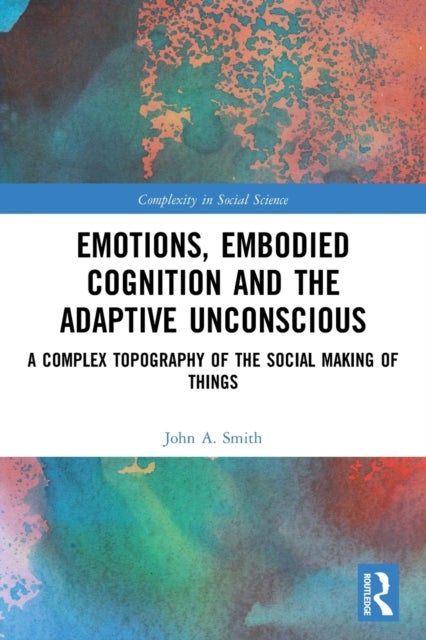
Emotions, Embodied Cognition and the Adaptive Unconscious av John A. (University of Greenwich UK) Smith
499,-
<P><EM>Emotions, Embodied Cognition and the Adaptive Unconscious</EM> argues for the need to consider many other factors, drawn from disciplines such as socio-biology, evolutionary psychology, the study of the emotions, the adaptive unconscious, the senses <I>and</I> conscious deliberation in analysing the complex topography of social action and the making of things.</P><P>These factors are taken as ecological conditions that shape the contemporary expression of complex societies, not as constraints on human plasticity. Without ''foundations'', complex society cannot exist nor less <I>evolve</I>. This is the familiar pairing from complexity theory: path dependency and dynamic emergence. Inter-disciplinary and complexity perspectives need to be incorporated into the social sciences. Routinely, sociologists think of social phenomena as a distinct field, expressed in the term: the ''<I>social construction</I><I>of''</I> without apparent need to refer to other material, biological, psychol








